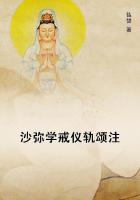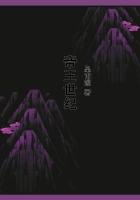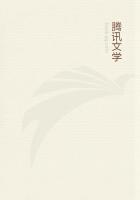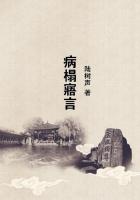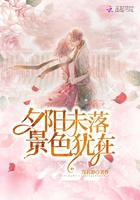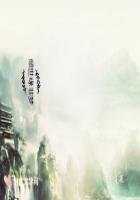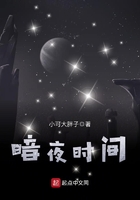These last words broke audibly from him as his head went down almost to his knees.
A hand was placed on his shoulder as a flake of snow falls on the water.
It was Christie Johnstone, radiant, who had glided in unobserved.
"What's wrang wi' ye, my lad?"
"The sun is gone to the Devil, for one thing."
"Hech! hech! ye'll no be long ahint him; div ye no think shame."
"And I want that little brute just to do so, and he'd die first."
"Oh, ye villain, to ca' a bairn a brute; there's but ae brute here, an' it's no you, Jamie, nor me--is it, my lamb?"
She then stepped to the window.
"It's clear to windward; in ten minutes ye'll hae plenty sun. Tak your tools noo." And at the word she knelt on the floor, whipped out a paper of sugar-plums and said to him she had christened "Jamie." "Heb! Here's sweeties till ye." Out went Jamie's arms, as if he had been a machine and she had pulled the right string.
"Ah, that will do," said Gatty, and sketched away.
Unfortunately, Jamie was quickly arrested on the way to immortality by his mother, who came in, saying:
"I maun hae my bairn--he canna be aye wasting his time here."
This sally awakened the satire that ever lies ready in piscatory bosoms.
"Wasting his time! ye're no blate. Oh, ye'll be for taking him to the college to laern pheesick--and teach maenners."
"Ye need na begin on me," said the woman. "I'm no match for Newhaven."
So saying she cut short the dispute by carrying off the gristle of contention.
"Another enemy to art," said Gatty, hurling away his pencil.
The young fishwife inquired if there were any more griefs. What she had heard had not accounted, to her reason, for her companion's depression.
"Are ye sick, laddy?" said she.
"No, Christie, not sick, but quite, quite down in the mouth."
She scanned him thirty seconds.
What had ye till your dinner?"
"I forget."
"A choep, likely?"
"I think it was."
"Or maybe it was a steak?"
"I dare say it was a steak."
"Taste my girdle cake, that I've brought for ye."
She gave him a piece; he ate it rapidly, and looked gratefully at her.
"Noo, div ye no think shame to look me in the face? Ye hae na dined ava."
And she wore an injured look.
"Sit ye there; it's ower late for dinner, but ye'll get a cup tea. Doon i' the mooth, nae wonder, when naething gangs doon your--"
In a minute she placed a tea-tray, and ran into the kitchen with a teapot.
The next moment a yell was heard, and she returned laughing, with another teapot.
"The wife had maskit tea till hersel'," said this lawless forager.
Tea and cake on the table--beauty seated by his side--all in less than a minute.
He offered her a piece of cake.
"Na! I am no for any."
"Nor I then," said he.
"Hets! eat, I tell ye."
He replied by putting a bit to her heavenly mouth.
"Ye're awfu' opinionated," said she, with a countenance that said nothing should induce her, and eating it almost contemporaneously.
"Put plenty sugar," added she, referring to the Chinese infusion; "mind, I hae a sweet tooth."
"You have a sweet set," said he, approaching another morsel.
They showed themselves by way of smile, and confirmed the accusation.
"Aha! lad," answered she; "they've been the death o' mony a herrin'!"
"Now, what does that mean in English, Christie?"
"My grinders--(a full stop.)
"Which you approve--(a full stop.)
"Have been fatal--(a full stop.)
"To many fishes!"
Christie prided herself on her English, which she had culled from books.
Then he made her drink from the cup, and was ostentatious in putting his lips to the same part of the brim.
Then she left the table, and inspected all things.
She came to his drawers, opened one, and was horror-struck.
There were coats and trousers, with their limbs interchangeably intertwined, waistcoats, shirts, and cigars, hurled into chaos.
She instantly took the drawer bodily out, brought it, leaned it against the tea-table, pointed silently into it, with an air of majestic reproach, and awaited the result.
"I can find whatever I want," said the unblushing bachelor, "except money."
"Siller does na bide wi' slovens! hae ye often siccan a gale o' wind in your drawer?"
"Every day! Speak English!"
"Aweel! How _do_ you _do?_ that's Ennglish! I daur say."
"Jolly!" cried he, with his mouth full. Christie was now folding up and neatly arranging his clothes.
"Will you ever, ever be a painter?"
"I am a painter! I could paint the Devil pea-green!"
"Dinna speak o' yon lad, Chairles, it's no canny."
"No! I am going to paint an angel; the prettiest, cleverest girl in Scotland, 'The Snowdrop of the North.'"
And he dashed into his bedroom to find a canvas.
"Hech!" reflected Christie. "Thir Ennglish hae flattering tongues, as sure as Dethe; 'The Snawdrap o' the Norrth!'"

